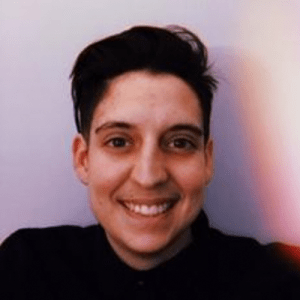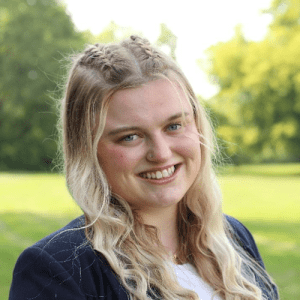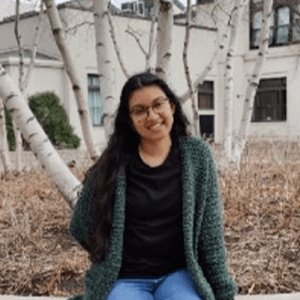The HEWG was founded in spring 2005 with the mission of conducting, promoting, and providing greater visibility to health equity research; strengthening collaborative efforts through research; and ensuring School of Public Health students and faculty work effectively in a diverse society. HEWG currently has four subcommittees to support its mission: research and training, community engagement, and student engagement.
The HEWG meets quarterly and welcomes new members.
HEWG Member Spotlights

Kadel Adelsheim
Kadel Adelsheim will be graduating in May 2024 with their Master of Public Health degree in Epidemiology. They previously earned their Bachelor of Arts in Medical Anthropology and Community Health with a Minor in Biology from Macalester College in 2014. Kadel was drawn to health equity work early in their public health career and has a special interest in studying communities with barriers to representation in public health data.
Read more
Before attending graduate school, Kadel worked Rainbow Health as an Insurance Navigator and Ryan White Benefits Counselor, where they managed health insurance applications and issues for Minnesotans, conducted outreach among marginalized communities in Minneapolis, and connected people to HIV care coverage. Kadel then worked at the M Health Fairview Comprehensive Gender Care Program as a care coordinator and program coordinator, providing services and healthcare navigation to transgender and gender non-conforming patients. Currently, they work as a graduate research assistant under Dr. Simon Rosser and Dr. Tetyana Shippee in the Minnesota Inclusive Long Term Services and Supports for LGBTQ+ Seniors Study (MILLS Study). They are also a trainee under HRSA and the Minnesota Department of Health’s Public Health Traineeship, which emphasizes emergency response and health equity training in public health. Kadel was drawn to the Health Equity Minor as an opportunity to align their social justice values and their epidemiological training. The coursework within the health equity minor offers a nuanced historical and systems-wide analysis of common public health issues that other courses did not. Kadel believes that the knowledge gained from the Health Equity Minor will greatly influence their career in public health after graduation. After graduation, Kadel hopes to contribute to work focusing on underrepresented populations within public health data, with a specific interest in transgender health and healthcare access. In their free time, Kadel likes to cook, be outside, and befriend animals.

Kylie Carreon
My name is Kylie and I am finishing my MPH in epidemiology this spring, and I have a background in biology. I am also a published author and I love dogs! I was drawn to HEM because I really want to work with ACES and protective factors in my career, and health equity is essential to this because there are risk factors that are very disproportionately distributed for different groups, and protective factors need to be tailored to individual experience.

Ashwani Chumber
My name is Ashwani Chumber and I am a PhD student in the Oral Biology program.
Read more
In my free time, I love to crochet and am often wandering around art museums in the Twin Cities. My previous work was in dental clinics as a sterile processing technician. I also would help with assisting when an extra set of hands was needed for a procedure. This experience showed me that there is a lot of disparity in terms of who receives adequate preventative care and who is often overlooked. As I learned more about the differences between those two groups, one thing became very apparent to me. There is plenty of policy work that needs to be done in order to bridge the gaps.
I am looking into a career in Science Policy as my focus is to bring better access to preventative dental care to underserved communities. My graduate program is very focused on the sciences and as I was looking for my minor, I wanted something that would teach me more about the health disparities in the United States, as well as provide me with the right tools to do something about it. I was very happy to find out about the Health Equity Minor. The classes have helped me to learn about topics from a new perspective, as well as gave me new things to think about for the conversation about how we need to keep the ball rolling. I’m grateful for the opportunity to be part of such a great program!
